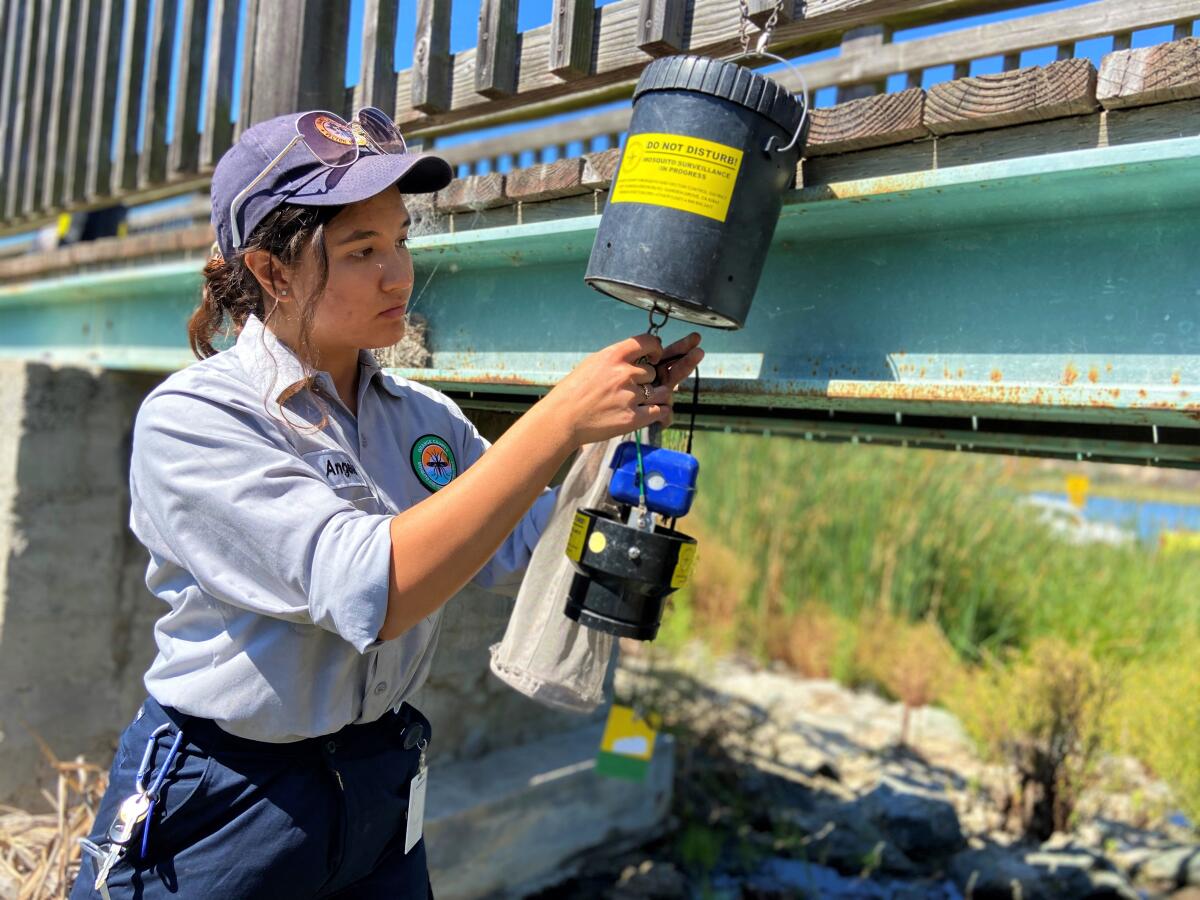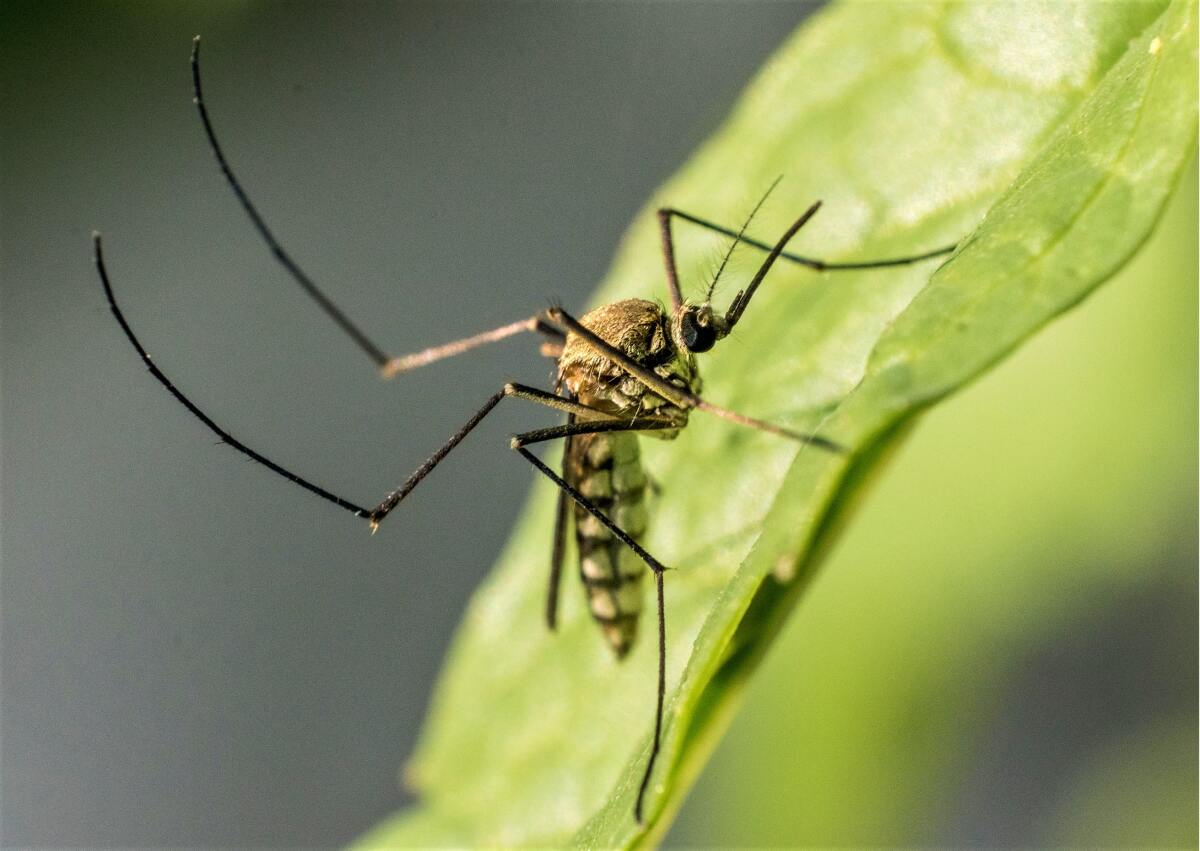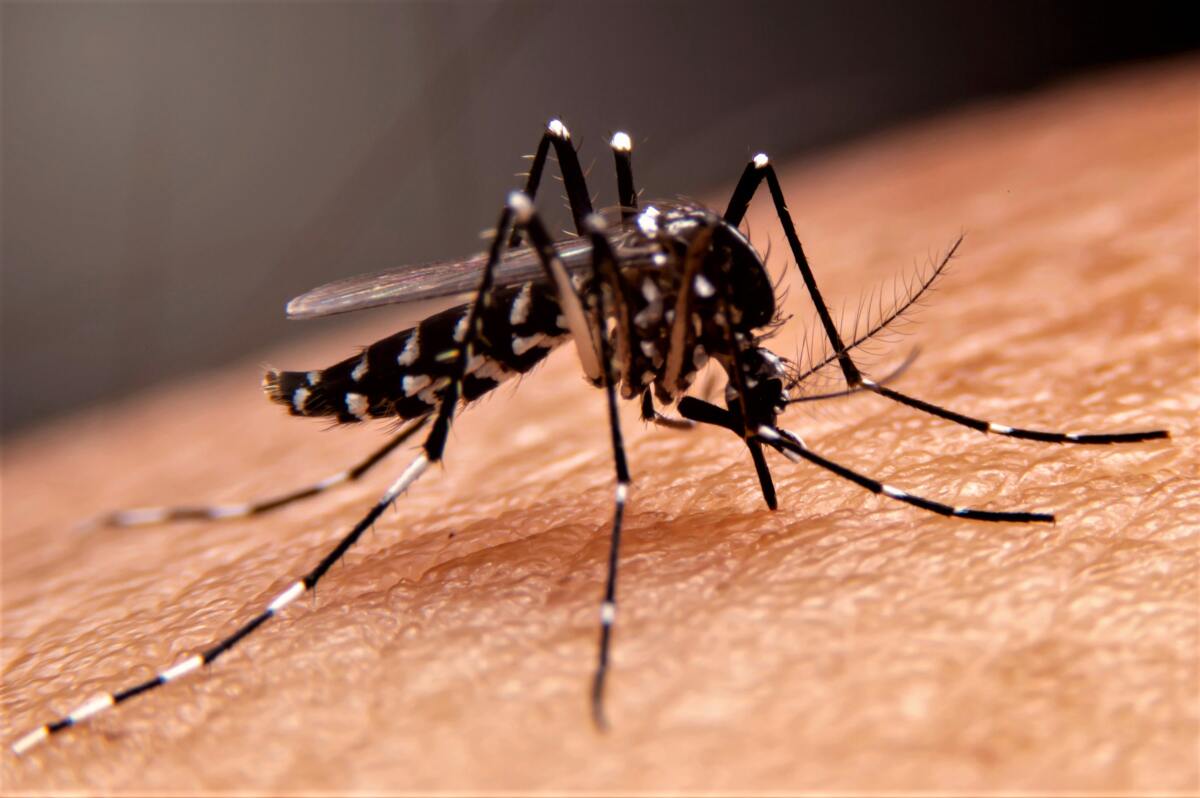First mosquitoes positive for West Nile virus in O.C. this year found in Huntington Beach

Vector control officials are advising Orange County residents to take precautions during what could be a particularly pesky mosquito season, after an insect collected from a trap in Huntington Beach last week tested positive for West Nile virus.
The infected insects were taken from a sample collected July 3 in an area between Adams and Atlanta avenues, bordered to the west and east by Newland and Bushard streets, respectively, Orange County Mosquito and Vector Control District spokesman Brian Brannon confirmed Tuesday.
The collection was part of an ongoing surveillance program conducted by inspectors, who lay and check traps in a grid spanning residential areas and park lands countywide. So far, Orange County has not recorded any human cases of West Nile virus but did record seven in 2023, along with one equine infection.

Cold-blooded creatures by nature, mosquitoes ramp up their activities when the weather warms, placing peak mosquito season from July through November, Brannon said Tuesday.
“This year, it’s been warm in the daytime but cool enough in the nighttime that we haven’t been seeing as much as we did last year,” he said. “But that’s starting to change.”
As summertime temperatures ratchet up, standing pools of water may become breeding grounds for two species now common in Orange County — Culex, or typical mosquitoes, which bite at dawn and dusk and lay eggs in still ponds and pools, and the ankle-biting Aedes, which tend to prefer humans to animals.
Aedes do not carry West Nile virus, a disease commonly carried by birds and transmitted to humans by the mosquitos that, like Culex, prefer avian blood. However, unlike their more typical counterparts, Aedes can lay eggs in water as shallow as a quarter of an inch.
This is problematic, Brannon says, because Aedes have been known to carry dengue, a virus that can be fatal in severe cases. Although dengue is more common in South and Central America and Africa, two local transmissions were recorded last October by health officials in the cities of Long Beach and Pasadena.
“Dengue is not good once it gets established,” Brannon said, adding that cases have been ramping up in Florida and Puerto Rico. “We don’t hear about it much in California, and we want to keep it that way.”
In a relatively new campaign called “Mosquitos Suck! Fight Back OC!” officials urge residents to scrub and drain water filled containers on a weekly basis, including birdbaths and pet bowls, keep all unscreened doors closed and wear light-colored long-sleeved shirts and pants when possible.
Amber Semrow, OC Vector Control’s director of scientific and technical services warned that finding West Nile virus in mosquitoes is one indication the virus is circulating in the local community.
“Huntington Beach is historically a high-risk area for West Nile virus activity,” Semrow said in a news release issued Monday. “[Meanwhile], conditions across the region are favorable for sustained virus activity during the warm summer months.”
For more information and tips, visit ocvector.org.

All the latest on Orange County from Orange County.
Get our free TimesOC newsletter.
You may occasionally receive promotional content from the Daily Pilot.




